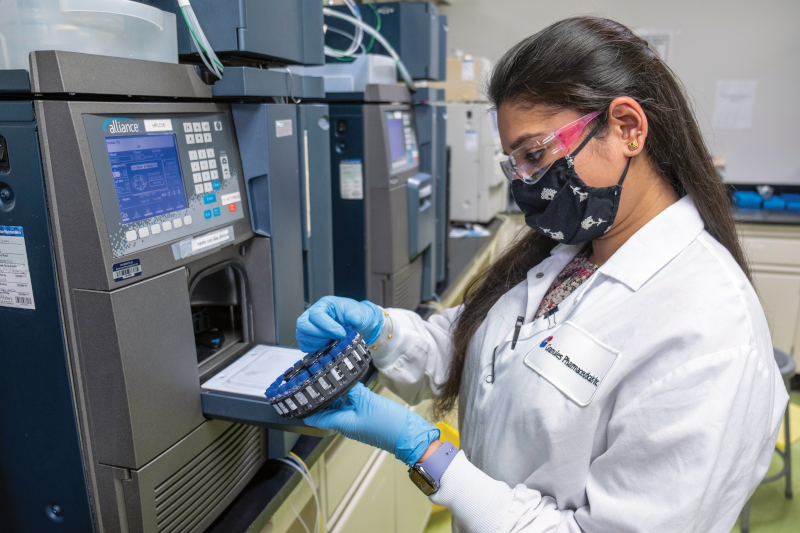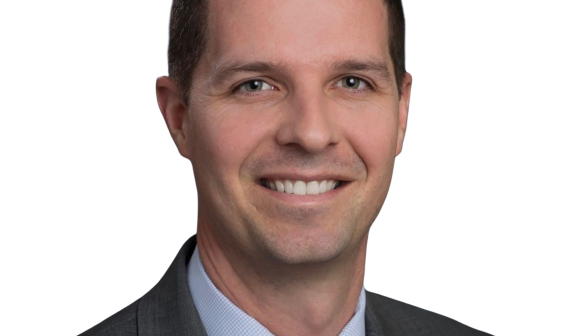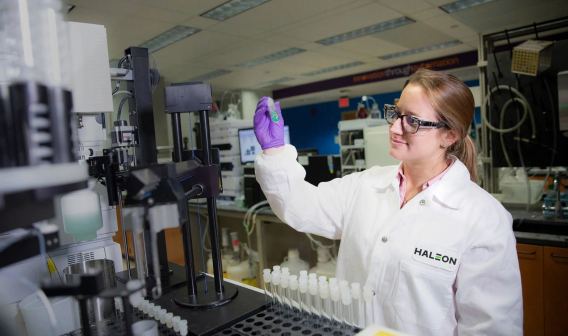Buoyed by Collaboration and Investment, Northern Virginia Life Sciences Companies Explore the Cutting Edge
Northern Virginia’s advantages in attracting talent are well known, from best-in-class public schools, to vibrant communities, to the attractions and sights of Washington, D.C.
Now, years of collaboration and investment by academia, industry, and local and state governments have begun to yield a bumper crop of life sciences startups and attract an influx of quickly expanding companies.
“In the past, there wasn’t much support for our industry in Northern Virginia,” said Ross Dunlap, CEO of Ceres Nanosciences, Inc., based in Prince William County. “But in the last few years, a lot of investment has gone into building life sciences infrastructure, and it’s been done very well.”
Ceres has been a direct beneficiary of that investment. The brainchild of scientists at George Mason University (GMU), Ceres started with the goal of detecting cancer earlier. But its founders soon realized that its technology — novel particles to capture specific biomarkers of disease — had broader applications. Ceres is now at the forefront of pandemic science, offering cutting-edge diagnostic technology for COVID-19, with plans to nearly double employment in the next two years.
Ceres is located in Innovation Park, a corporate research park anchored by GMU’s Science and Technology Campus. GMU, an R1 research institution, is playing a central role in performing groundbreaking research, educating a diverse workforce, and providing access to the intellectual capital, networks, and research facilities critical for innovation in the sector. Also located in Innovation Park is American Type Culture Collection, a global biological resource center, and facilities that support bioscience startups, like the Prince William Science Accelerator.
Helping Companies Get off the Ground
Ceres was among the inaugural class of startups at the Prince William Science Accelerator and the first “graduate” of the facility, moving to its own facility in 2018. The accelerator, created by Prince William County in 2014, is a startup incubator for biotech and life sciences companies, offering nine unique wet lab spaces in the 10,000-square-foot facility.
That accelerator, geared toward early-stage companies, is currently full. But the Northern Virginia Bioscience Center, a 30,000-square-foot facility with wet labs, is approaching completion. It’s being developed in a public-private partnership and is designed for companies moving beyond the startup phase. As of December 2021, half the space was preleased.
“We’re seeing investment in commercial lab space,” said Amy Adams, executive director of the Institute for Biohealth Innovation at GMU, “and there is room to grow.”
Northern Virginia’s burgeoning commercial appeal has also attracted a diverse array of companies, such as Fairfax County’s Vibrent Health, developers of the platform used by the National Institutes of Health in its “All of Us” research program to collect and study health data from Americans to speed research discoveries and enable more individualized health care.
Another is Granules Pharmaceuticals, Inc., a wholly owned, U.S.-based subsidiary of Granules India that employs more than 130 people to manufacture drugs for heart arrhythmia and other conditions, and is looking to hire up to 40 more workers by spring 2022. The company first set up shop in Fairfax County in 2014, with a 50,000-square-foot facility that included manufacturing, warehouse, and administrative space. While a large chunk of the company’s business comes from manufacturing common drugs, the Fairfax facility is home to the company’s drug research and development operation.
The company has since doubled its footprint at that location. When it’s time to woo workers who live out of state, the pitch is easy.
“I always tell people that quality of life is better in Northern Virginia,” said Vijay Ramanavarapu, the company’s president. “The schools are excellent, and infrastructure is solid here. It’s a pleasant place to live, as well. You can have big-city amenities, but you can also have outdoor amenities.”
Powered by Collaboration
“The Northern Virginia life sciences community embodies a collaborative spirit, with everyone committed to creating an ecosystem where companies can thrive,” Adams said. “We’re seeing our localities working together, and county-level programs to attract, retain, and grow life sciences businesses.”
GMU launched the Institute for Biohealth Innovation in 2016, which serves as the front door for industry, healthcare, and others to easily connect with their faculty and student researchers. To further support the growing life sciences ecosystem, the NOVA BioHub — modeled after the successful CvilleBioHub in Charlottesville — is being created to unite and support the business, academic, and healthcare community.
Another leader of research and innovation is the Janelia Research Campus in Loudoun County. Janelia is an arm of the Howard Hughes Medical Institute (HHMI), a nonprofit research organization and philanthropy in nearby Chevy Chase, Md.
Once we develop something, we want to use it and move on to the next thing. There's always an opportunity here.
Janelia offers scientists early in their careers opportunities to dive into research without worrying about funding, which is fully supplied by HHMI. The campus has historically focused its research at the cutting edge of neuroscience, said Mike Perham, Janelia’s director of innovation and external relations.
Janelia is continually looking for companies that provide ancillary services for its research and offer support on research devices. For instance, Janelia scientists invented a number of versions of a fluorescent synthetic dye because they needed it for research. The campus has since licensed out some of the simpler versions of the dye to companies in the United States and abroad, Perham said, but is looking for local partnerships to manufacture research tools like the dyes.
“Once we develop something, we want to use it and move on to the next thing,” he said. “There’s always an opportunity here.”
The Janelia campus is also deeply involved with Loudoun County Public Schools, offering STEM curriculum for K-12 students that includes in-school activities and presentations, after-school programs, and field trips to the Janelia campus. In 2019, before the pandemic limited interactions, campus scientists did 1,400 hours of community outreach, Perham said.
“We want to get scientists out there who kids can relate to,” he said. “I think that’s one of the most impactful things we do.”
Ramanavarapu mentions stellar schools, infrastructure, and a balance of big-city amenities with outdoor activities when trying to attract new hires, and Dunlap echoes that praise. The amenities the region has to offer have made it easy for Ceres to attract new employees — often right out of school — and retain them once they join. Compared to other life sciences hubs like Silicon Valley or Boston, the area is affordable — for both companies like Ceres and the people it hires.
“Northern Virginia,” he said, “is a great place to locate.”





